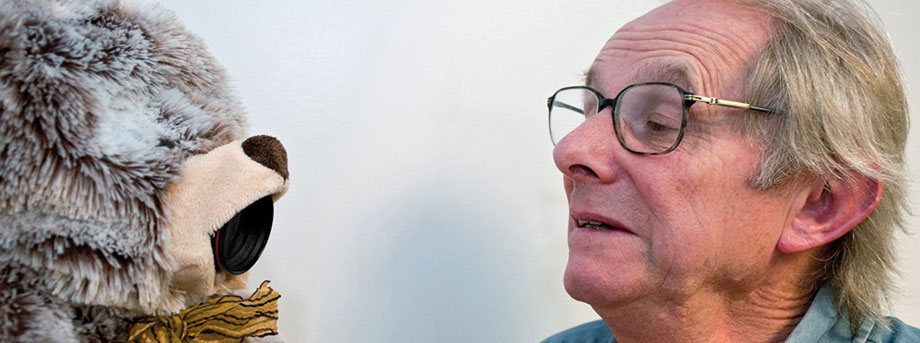Lights, camera, interaction
December 3rd, 2010

Film director Ken Loach has officially opened a new research lab which explores pioneering ways of improving communication between parents and children with hearing difficulties.
The Family Lab is part of the National Institute for Health Research (NIHR) Biomedical Research Unit in Hearing, a partnership between The University of Nottingham, Nottingham University Hospitals Trust and the Medical Research Council Institute for Hearing Research.
Based at Ropewalk House in Nottingham city centre, the Family Lab films interaction between parents and their children – using cameras hidden in teddy bears – and studies the footage for instances of successful communication. Sometimes just a single frame showing body language or facial expressions, this evidence is used to help parents to develop their skills and become more confident in their ability to communicate with their child.
Dr Deborah James, who is leading the research at the Family Lab, said: “For most parents, the diagnosis of deafness in their baby comes out of the blue and is very stressful — they worry about how to communicate with their baby.
“We are embarking on a major programme of work to explore the biological, psychological and social basis for this film-based intervention which parents find empowering. This unique intervention approach has caught the interest of Ken Loach, a major UK film director, who also uses film to help people reformulate their identity.”
Mr Loach said: “When a family finds out that a child can’t hear, it is traumatic. It can shatter the family and they really need support. We are very much aware of the need for a network of supporting professionals to carry a family through.
“This unit seems like a brilliant idea. When people put their imagination to a situation and have the skills and knowledge I think many things are possible.
“Film is a very careful observer of how people are. When you film someone having a conversation, listening or responding you see things in film that you don’t see as a casual observer and you can look at it again and build on those responses.”
The Biomedical Research Unit in Hearing, and its Family Lab, is working alongside the Trust’s Nottingham Cochlear Implant Centre (NCIC) at Ropewalk House and the Ear Foundation to carry out translational research in hearing.
Tags: Dr Deborah James, Family Lab, Ken Loach, Medical Research Council Institute for Hearing Research, National Institute for Health Research Biomedical Research Unit in Hearing, Nottingham University Hospitals Trust
Leave a Reply
Other News

Need news? See you on SharePoint
After 14 years of service, Campus News is being retired as the university’s staff news platform. […]

Roads and car parks closed for refurbishing work
As part of ongoing road improvements at the university, works will be taking place to resurface […]

